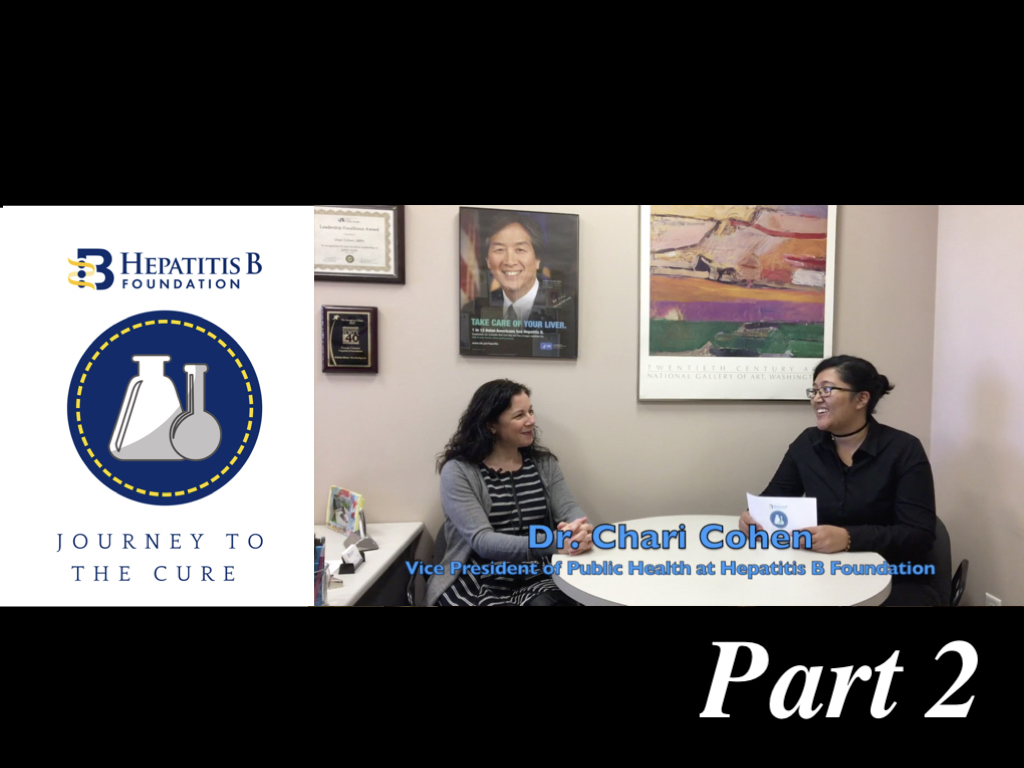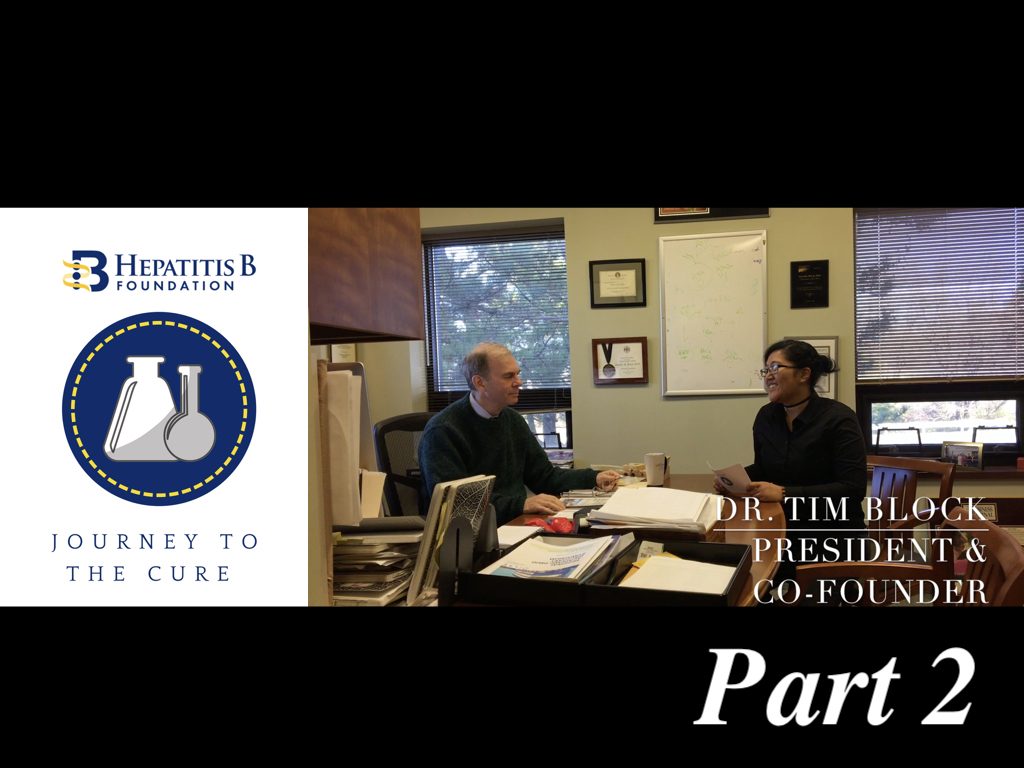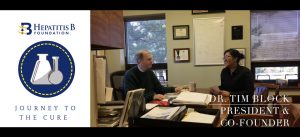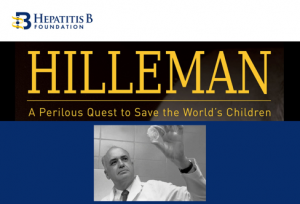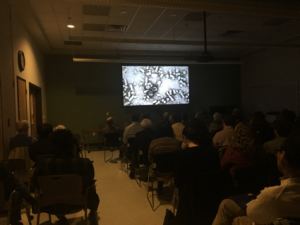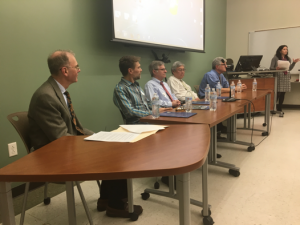
This month, we spoke with Dung Hua of the Vital Access Care Foundation, formerly known as the Vietnamese American Cancer Foundation. Dung and her team continuously work to address the needs of the Vietnamese community in Orange County, California and the surrounding areas. Dung spoke to us about her experiences addressing hepatitis B and liver cancer in this community, as well as her contribution to the Learn the Link campaign, which officially launches in February 2024. Dung shared the challenges she faces, her rewarding experiences and the many ways she works to connect with and educate her community.
The Learn the Link campaign was created to raise awareness about the link between chronic hepatitis B infection and liver cancer in a culturally appropriate way for communities that are most impacted. It was informed by speaking directly with community members and created with their needs centered and prioritized. The Hepatitis B Foundation held focus groups and assembled an advisory committee to learn about the needs and concerns of the communities for which the educational materials were being created to ensure that the materials were informative and sensitive to the traditions and norms of different cultures.
Can you introduce yourself and your organization?
My name is Dung and I work for the Vital Access Care Foundation. We recently underwent a name change because we expanded our services to not only focus on cancer, though The Cancer Continuum of Care, and our liver cancer and hepatitis B programs are the primary focus. We started in 1998 and provided general cancer assistance services, which later developed into a breast cancer focus. In 2003, we started the liver and hepatitis B programs. One of our founders is an oncologist and the other is a gastroenterologist who provides consultation and guidance for our hepatitis B and liver cancer programs.
Can you tell me about your organization’s programs that address hepatitis B and liver cancer directly?
Our hepatitis B and liver cancer programs focus on the Vietnamese community. We provide outreach, education, patient navigation and screening. We start with education because many people in this population are not aware of hepatitis B. We host community screenings and bring screenings into the community at churches and cultural events. People are more willing to get screened when we bring screenings to these events. If someone tests positive for hepatitis B, we provide patient navigation and linkage to care. If someone needs to be vaccinated, we provide guidance to link people to the vaccine. If a case is more complicated, we consult with a board member who can provide a professional consultation at no cost. During the pandemic, we tried to tie hepatitis B to COVID-19 and encourage people to get the COVID-19 vaccine and a hepatitis B screen at the same time. We leveraged our hepatitis B vaccine experience and surprisingly, a lot of people were willing to “get poked” twice in one day.
Can you tell me about the community that your organization serves?
We focus on the Vietnamese American community in Orange County. This community consists of immigrants and refugees. In this community, there is still a lot of stigma around hepatitis B. Many people still believe that you can get hepatitis B from sharing a meal with people who are positive. In the Vietnamese community, there’s a saying: “If you sweep the floor, then you find garbage,” which is an idiom for avoiding the doctor; if you don’t go to the doctor, then you won’t know you’re sick. Culturally, you only share what is good. There’s a stigma with seeking help. You’re not supposed to share that you’re weak or struggle, which can lead people to internalize their pain.
In addition to stigma, many people deal with undiagnosed mental health issues and the challenges of moving to a new country. This community also has lower rates of insurance coverage, which can make receiving routine medical care difficult. The Asian community also deals with the model minority misconception, which can be harmful because many people stereotype Asian people as well educated with a stable income, which isn’t always true.
Many of the people we serve either speak limited English or no English at all. When people come to the United States (US), they need to immediately find a job and are often classified as low skilled workers. It’s hard for recent immigrants and refugees to have upward mobility. However, many people are motivated by creating better opportunities for their family and children.
What are some challenges you face in addressing your community’s health concerns?
The biggest challenges are stigma around disease and having culturally and linguistically appropriate materials. Languages are complicated. Different waves of immigration affect the way that you can communicate with people because languages change over time, which means finding a balance between older and newer languages and dialects is important. It continues to be a learning process for me, as I am exposed more and more to people in my community. It’s important and difficult to be responsive to stigma and all language and cultural barriers, but it is also the most rewarding part of the work.
Why do you think that hepatitis B and liver cancer educational materials are so important for your community?
They’re important because knowledge is power. The key to improving is understanding and knowledge, which comes from education. People won’t know what’s best for them if they don’t know the information, which needs to be reinforced through repetition. If people do things and they don’t understand why they are doing them, the behavior won’t last. But if they do understand, they can continue those behaviors and help to spread that information to others.
What was your experience facilitating the focus groups and serving on the advisory committee that informed the Learn the Link campaign?
I was there to support and provide observation of the focus group. What I remember is that the community members were very engaged. They have personal experience with hepatitis, which empowered them to engage more. It was a safe space for them to provide feedback. It was empowering for them to be a part of the process and to realize that they are being listened to. The effort of this project to create culturally appropriate materials and seek out feedback from this community allowed people to feel like they made a meaningful contribution to something important.
While serving on the advisory committee, I remember a number of us were brought together from many different communities and we provided our thoughts and feedback on the project. I enjoyed the opportunity to hear the needs, concerns, and feedback from communities that we don’t typically work with. I found out that many things are similar among diverse communities and it was helpful for me to have the opportunity to learn more about other communities. Seeing everyone at the table providing their perspectives and hearing about the commonalities and the uniqueness was a very interesting experience.
Why is it important that organizations speak directly with community members when creating campaigns like “Learn the Link”?
It’s important for any campaign or activity to focus on the community. To be responsive to the community, we must listen to them. We don’t want to create something that we think is the best but doesn’t work for the people that it’s supposed to work for. That direct connection and relationship that allows community members to feel comfortable sharing direct feedback is the key to successful outreach and education.
What is the most effective way for organizations to engage with your community?
The most effective way to engage with the community is meeting them where they are. Being willing to go out of the way and find community members, and being open to understanding their needs and concerns is important. We can’t just work 9-5, we have to go out and find them in the community outside of regular working hours. We try to meet community members at flexible hours, host community meetings on the weekends, meet them at the temple or meet them at the park. We try to listen, understand and build rapport.
Understanding the cultural and generation differences is important as well. For the Vietnamese population specifically, word-of-mouth is powerful. Information spreads in the community through word-of-mouth and can spread like wildfire.
Connecting with community leaders and other people and organizations who work with the community directly is another way to connect with people. This stems from the immigrant and refugee background; people who lived through the war have a hard time trusting public entities but have trust in the people that they’ve built a rapport with.
Do you have any final thoughts or comments about the “Learn the Link” campaign and its potential to improve the health practices of the people in your community? Are there any further materials you hope to see in the future?
I checked out the materials when they were launched and pulled materials to show to a new employee, and I noticed that all materials were in English. When all the translations are available, it will be great to share with not only the community, but with people who work with the community as well. Hepatitis B may not be people’s priority, but with promotion, these materials can remind people that this silent killer is still around and there are resources available.
What was your experience in helping to review and edit one of the final peer-reviewed manuscripts that will be submitted for publication from this project?
There were a lot of words to read! Attending the advisory meetings, attending the focus groups, and reading the manuscript was spread out over a long period of time. But it was great to read the summary of all of the work that has been done. It was a nice refresher and I enjoyed reading quotes that resonated with me personally. Other communities have a lot of things in common with the Vietnamese community. It’s very exciting to collaborate together, since we are all doing this work.





